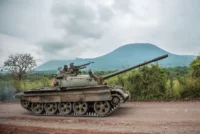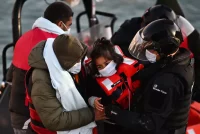
My Story Was Told in ‘Hotel Rwanda.’ Here’s What I Want the World to Know Now.
This week, the world will again turn its eyes toward Rwanda. April 6 marks 30 years since the start of one of the most horrific events in modern history, the 1994 Rwandan genocide. Nearer in time but not unrelated, it has been just over one year since I left Rwanda and returned to the United States, released from prison after 939 days in captivity.
I have not yet spoken at length about what those years in a Rwandan prison were like, or about the daily reality for Rwandan political prisoners who, like me, found themselves behind bars for exercising their freedom of expression.… Seguir leyendo »











